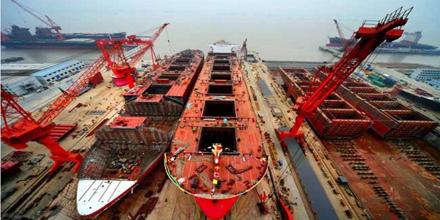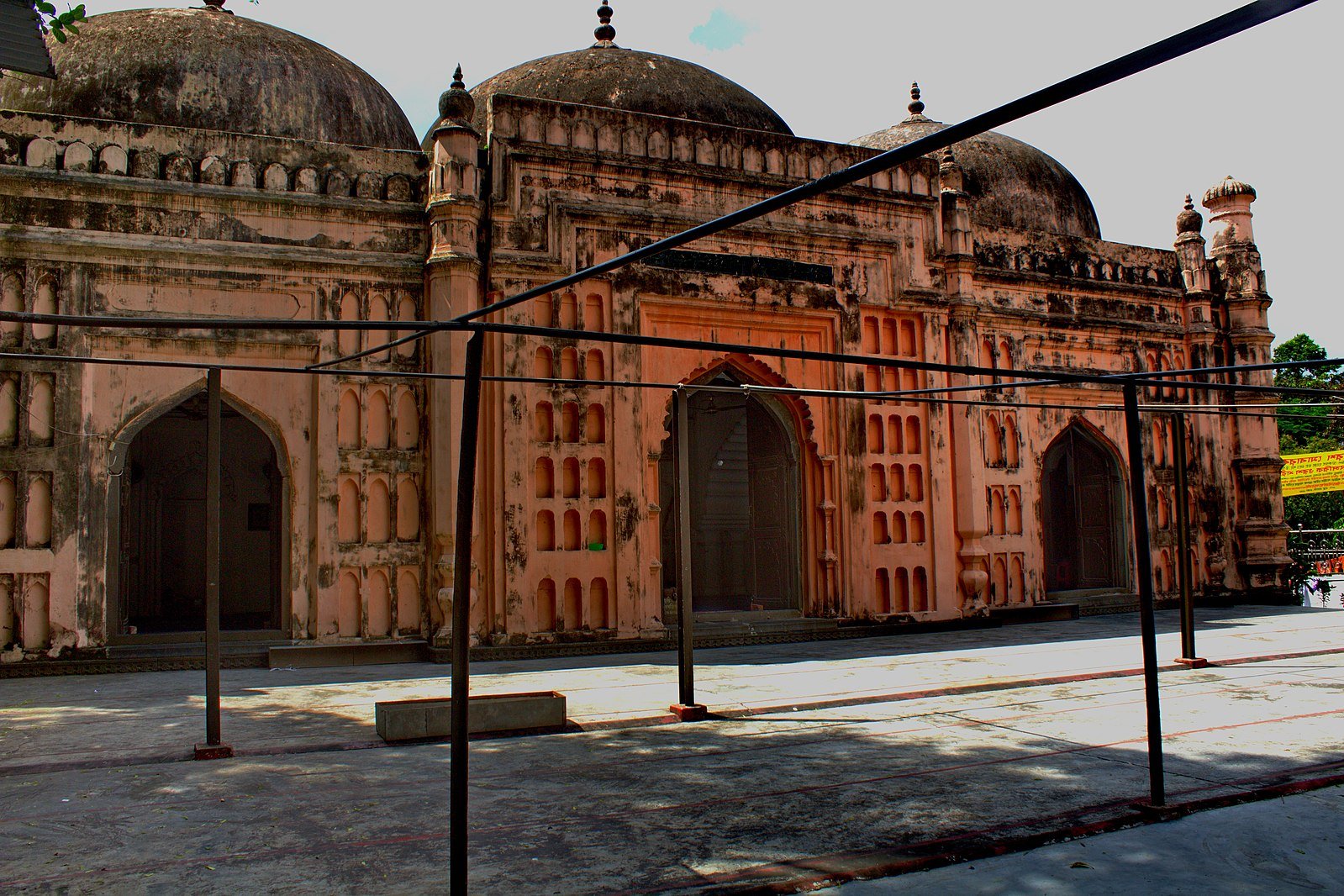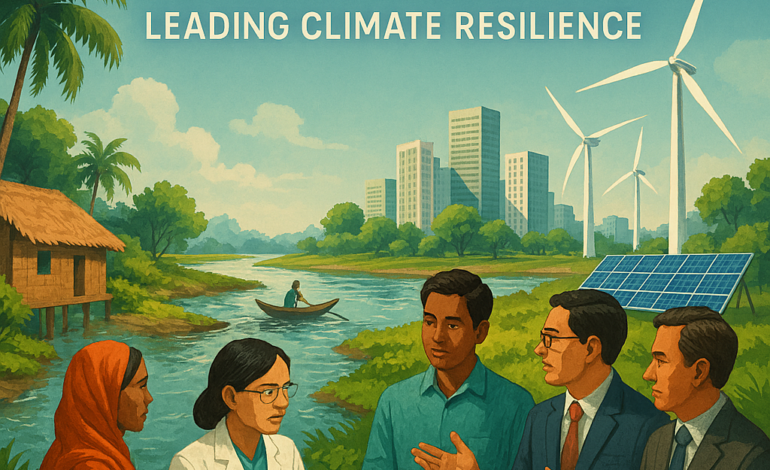Bangladesh Climate Action Forum 2025: Leading Climate Resilience
On September 3, 2025, Dhaka hosted the third edition of the Bangladesh Climate Action Forum at the Radisson Blu Dhaka Water Garden. This high-profile gathering brought together over 300 policymakers, industry leaders, NGOs, and climate experts to discuss urgent climate action strategies for Bangladesh, a country ranked among the most vulnerable to climate change impacts. The forum’s theme emphasized climate leadership, decarbonization, adaptation, and climate justice, aiming to position Bangladesh as a regional leader in climate resilience and innovation.
Bangladesh’s Climate Vulnerability and Urgency
Bangladesh’s vulnerability to climate change is well-documented. The country faces frequent monsoon floods, tropical cyclones, and rising sea levels that threaten its densely populated coastal regions. In 2024, the World Bank approved $270 million to support Bangladesh’s flood recovery efforts and enhance resilience, focusing on infrastructure reconstruction and climate-resilient agriculture in flood-prone areas like Chattogram and Sylhet.
Innovative Solutions for Climate Resilience
In response to these challenges, Bangladesh has implemented innovative solutions. For example, in the Haor region, flood protection walls and tree buffer zones have been established to safeguard communities from flash floods. (Asian Infrastructure Investment Bank) Additionally, the government has launched the Climate Smart Education Systems Initiative (CSESI) to integrate climate change adaptation and environmental sustainability into the education system, aiming to build a generation of informed and proactive citizens. (UNESCO)
Comparative Analysis: Bangladesh vs. Pakistan and Sudan
While Bangladesh has made significant strides in climate action, it is essential to compare its efforts with those of other flood-prone nations like Pakistan and Sudan to identify areas for improvement and collaboration.
Pakistan: Facing Similar Challenges
Pakistan shares many of the same climate vulnerabilities as Bangladesh, including flooding, heatwaves, and water scarcity. In 2022, Pakistan experienced devastating floods that affected millions of people and caused extensive damage to infrastructure and agriculture. The government and various organizations have since focused on improving flood forecasting, disaster response, and infrastructure resilience. However, challenges remain in implementing long-term adaptation strategies, particularly in rural areas where resources are limited. Pakistan’s experience underscores the importance of community-based approaches and the need for international support to build resilience.
Sudan: A Different Set of Challenges
Sudan faces its own set of climate challenges, including desertification, droughts, and conflicts exacerbated by climate change. While Sudan has made efforts to address these issues through initiatives like the Great Green Wall project, which aims to combat desertification by planting trees across the Sahel region, the country faces significant obstacles due to ongoing conflicts and limited resources. Sudan’s situation highlights the need for peace and stability as prerequisites for effective climate action. Without addressing underlying conflicts, climate adaptation efforts may be undermined.
Lessons Learned and Opportunities for Bangladesh
From the experiences of Pakistan and Sudan, several lessons can be drawn that are relevant to Bangladesh’s climate action strategies:
- Community-Based Approaches: Engaging local communities in climate adaptation efforts ensures that solutions are context-specific and sustainable. Bangladesh’s initiatives in the Haor region demonstrate the effectiveness of such approaches.
- Integration of Climate Education: Incorporating climate change education into school curricula, as Bangladesh is doing through the CSESI, helps build a generation that is aware of and prepared for climate challenges.
- International Collaboration: Climate change is a global issue that requires collective action. Bangladesh can benefit from sharing knowledge and resources with other countries facing similar challenges.
- Peace and Stability: Ensuring political stability is crucial for implementing long-term climate strategies. Bangladesh’s relatively stable political environment provides an opportunity to focus on sustainable development.
Urban Resilience and Innovative Solutions
In urban centers like Dhaka, the challenges posed by climate change are particularly acute, including issues such as rising sea levels, heavy monsoon rains, and clean water scarcity. Architect Rafiq Azam has spearheaded initiatives to transform the city’s southern districts into climate-resilient zones. His team has revitalized 31 community parks and playgrounds, converting them into green spaces equipped with water-catchment areas that collect, filter, and store rainwater for drinking purposes. Additionally, existing drainage systems have been enhanced to manage street runoff, thereby mitigating flooding risks. These innovative solutions not only address immediate environmental concerns but also serve as a model for other low-lying cities worldwide facing similar threats. (TIME)
Integrating Climate Resilience into Urban Infrastructure
Bangladesh is increasingly integrating climate resilience into its urban infrastructure planning. A notable example is the $850 million agreement with the World Bank, which includes funding for the Bay Terminal Marine Infrastructure Development Project in Chattogram. This project aims to construct a 6-kilometer climate-resilient breakwater and access channels, enhancing the port’s capacity to handle larger vessels and reducing transportation costs. By improving port facilities, the project not only boosts trade but also strengthens the country’s resilience to climate-induced sea-level rise and extreme weather events. (Reuters)
Bangladesh’s Role in Global Climate Leadership
The Bangladesh Climate Action Forum served as a platform to showcase the country’s commitment to addressing climate change and building resilience. By learning from the experiences of other nations and continuing to innovate, Bangladesh has the potential to lead by example in the fight against rising waters. As the world grapples with the impacts of climate change, Bangladesh’s proactive approach offers valuable insights into how vulnerable nations can adapt and thrive. Through community engagement, education, collaboration, and stability, Bangladesh can continue to strengthen its position as a leader in global climate action.
The Bangladesh Climate Action Forum 2025 highlighted the nation’s dedication to combating climate change through innovative solutions, community engagement, and international collaboration. By integrating climate resilience into urban planning, education, and infrastructure, Bangladesh is setting a precedent for other vulnerable nations. As the global community faces escalating climate challenges, Bangladesh’s efforts serve as a beacon of hope and a model for sustainable development.








